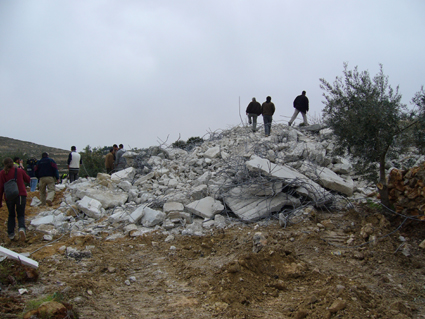Tag: Settlers
-
In al-Khalil (Hebron) the situation grows gravely worse
18th October 2015 | International Solidarity Movement, al-Khalil team | Hebron, occupied Palestine After a day of intensified violence in al-Khalil the midnight hour brought horrifying screams for help from local mosques, the screaming sirens of ambulances and clouds of teargas drifting through the streets from Bab al-Zawiya. Three young Palestinians in Khalil lay dead…
-
Ruthless killing of Palestinian youths in al-Khalil (Hebron)
17th October 2015 | International Solidarity Movement, al-Khalil team | Hebron, occupied Palestine ******* UPDATE 9pm: No stop to violence, settlers are taking over the streets The Tel Rumeida neighbourhood of al-Khalil is on lockdown for Palestinians. Palestinian residents and internationals are not allowed to be on the streets, on their own roofs or at…
-
Palestinian and international civilians to resist revenge home demolitions
16th October 2015 | International Solidarity Movement, Al-Khalil team | Nablus area, occupied Palestine Palestinian civilians joined by International solidarity activists will gather tonight, Friday 16, October 2015, at the Nablus city homes of Yahya Hamad, Karam Al-masri and Sameer Al-kosa after Israeli forces threatened revenge demolitions within 24 hours. Yesterday night, hundreds of Palestinians…


